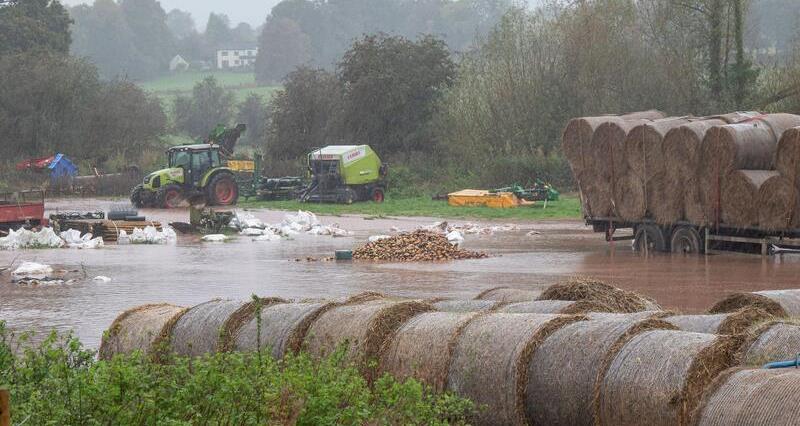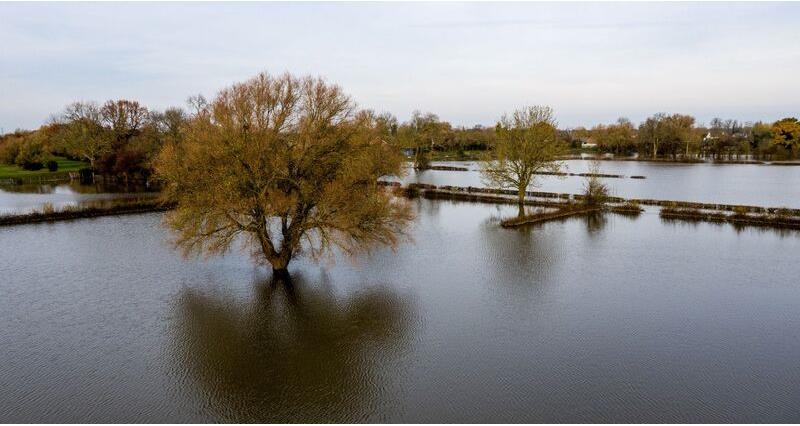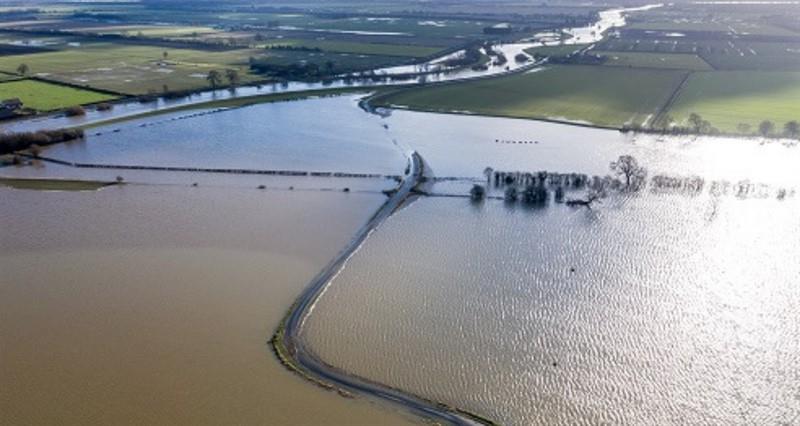Many farmers are now seeing next yearŌĆÖs crops rotting underwater after a devastatingly wet 2023 harvest which was the most expensive crop ever grown due to inflation and as a result saw yields take a tumble.
ŌĆ£We are seeing desperate scenes across the country with many areas experiencing devastating flooding,ŌĆØ said NFU Deputy President Tom Bradshaw ahead of visiting affected farms in the North and Midlands. ŌĆ£Sadly, lives have been lost and our thoughts are with those families affected.ŌĆØ
ŌĆ£WeŌĆÖre hearing desperate stories from many of our members who are struggling to get crops out of the ground from this season or are still to plant autumn crops for next year. Those crops that are in the ground are likely to rot meaning the output and profitability of next yearŌĆÖs harvest is already seriously compromised, building on an unprecedented year in terms of weather and cost.ŌĆØ
As more heavy rain is forecast this week and river levels still to peak in some areas, we've said a comprehensive water management strategy is urgently needed to improve flood resilience, including adequate investment, so BritainŌĆÖs farmers and growers can continue producing the nationŌĆÖs food.
Serious commitment needed from government
Tom described the recent unprecedented levels of rainfall as the latest in a ŌĆ£perfect stormŌĆØ of financial burdens for farmers and growers with on-farm costs running high and the phasing out of government support payments.
ŌĆ£Despite what weŌĆÖve heard from government in recent times about the importance of UK food security, this just isnŌĆÖt being reflected in policies on how the nationŌĆÖs food production is valued, and how water infrastructure is managed.
ŌĆ£Farming is on the front line of climate change and the sector is experiencing volatility and severe weather events more often. ItŌĆÖs why we absolutely need a long-term plan to improve how we manage water in times of flood and drought, as we regularly experience both on an annual basis, and both severely impact our ability to produce food.
ŌĆ£A comprehensive water management strategy should set out how we can collaborate better with government, as well as local authorities, water companies and Environment Agency; one that allows farmers and growers to be part of the solution and take on-farm action. A strategy that prioritises food security recognising that domestic food production is part of the critical national infrastructure.ŌĆØ
ŌĆ£This really is a perfect storm with farmers and growers now facing further financial burdens at a time when on-farm costs are already running high and government support payments are being phased out.ŌĆØ
NFU Deputy President Tom Bradshaw
Launched during 2021, the NFUŌĆÖs integrated water management strategy calls for urgent action to bring the nationŌĆÖs water infrastructure up to date to better cope with extreme weather events, from flooding to drought.
ŌĆ£Central to this will be significant investment with ambitious upgrades of ageing rural flood defences, drainage and waterways as well as regular maintenance,ŌĆØ Tom explained. He added that farming businesses close to urban areas which are absorbing and holding flood water at a personal cost must be reimbursed.╠²
ŌĆ£A serious commitment by government and regulatory authorities to plan, upgrade and invest in the nationŌĆÖs water management and infrastructure will have benefits for everyone, including our farmers and growers, so they are able to continue producing climate-friendly sustainable food.ŌĆØ
Support and advice
ACT
Know what to do when flooding is forecast. You should take action based on receiving a flood alert and checking local river levels.
Understand the flood warning codes:
- Severe flood warning: severe flooding, danger to life.
- Flood warning: flooding is expected. Immediate action required.
- Flood alert: flooding is possible. Be prepared.
Visit our adverse weather, water and flooding toolbox for links to real-time weather, tidal and flooding information to help keep you and your business safe, including quick tips on using your mobile phone to send an emergency message or share your location.
You can sign up to flood alerts at: .
If you've been affected by flooding, read our quick guide on immediate steps to take and advice on recovery.
You can also report incidents to the┬Ā┬Āby calling┬Ā0800 80 70 60.╠²



